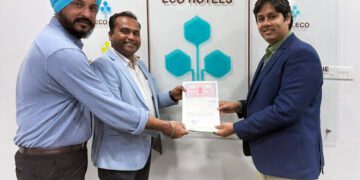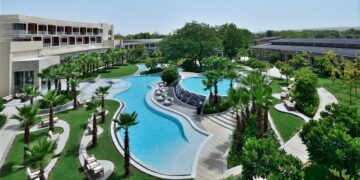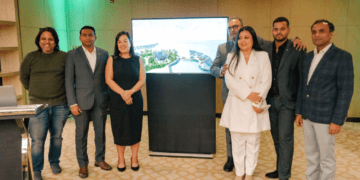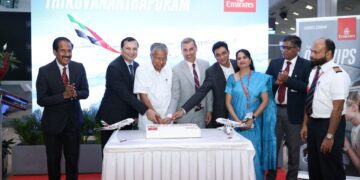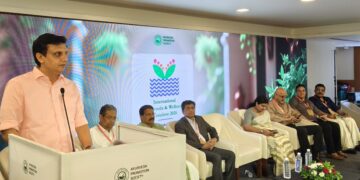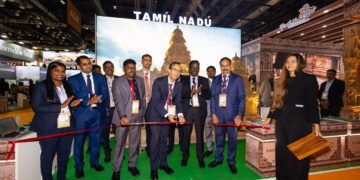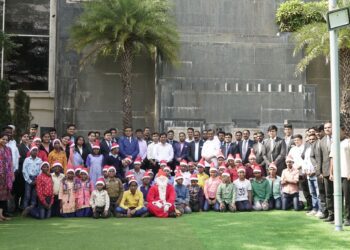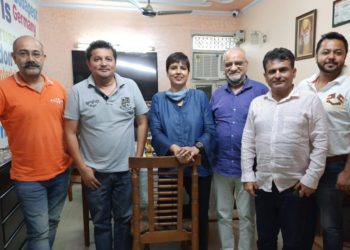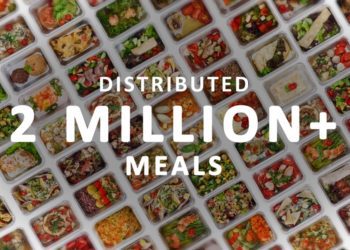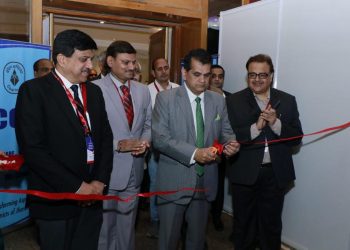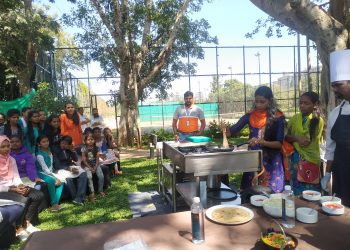In a country where a majority of people are deprived of clean and safe drinking water even after 70 years of independence, Janajal – the water ATMs, comes to the rescue to uplift the sorry circumstances by making safe drinking water available and accessible to millions of Indians at an affordable cost. With its campaign titled “Khush Raho India”, Janajal aspires to reach the remotest areas of the country by 2018 and make drinking water accessible. Mr. Parag Agrawal, Founder and CMD – Janajal, shares more.
- What is the Janajal mission all about?
Janajal, is the flagship initiative of Supremus Group to change the perception and thought process on drinking water and to ensure better living. The core team is headed by Founder & CMD Parag Agarwal. For over 2 decades, Parag has worked with cutting edge technologies and worked across sectors and geographies to enable their implementation in India. His biggest strength being his ability to work with the private sector and state, federal and government agencies, both within India and overseas. Supremus Developers Pvt. Ltd. is the flagship company of the Supremus Group that is singularly focussed on making safe drinking water available and accessible to millions of Indians at an affordable cost through installation of water ATMs.
- What is the blueprint that you adopted to fulfil the campaign of Khush Raho India?
JanaJal is singularly focussed on making safe drinking water available and accessible to millions of Indians at an affordable cost through installation of water ATMs. As a part of the campaign Khush Raho India JanaJal will be installing water ATM’S and JanaJal WOW (Water on Wheels) mobile ATM built on battery operated e – rickshaws to provide safe drinking water.
- How do you maintain the quality and hygiene standards in the water ATMs?
Driven by the need for sustainability in terms of operations and maintenance the JanaJal water ATM concept was developed with the objective of ensuring consistency in the quality of water and bringing in efficiency during the water treatment process. A consumer can now walk up to a water ATM with their own container 24X7 and procure their desired quantity of water starting with a chilled glass of 300 ml water up to 20 litres which is the minimum quantity used in a household everyday for drinking and cooking. In order to maintain the quality and hygiene standards each and every water ATMs of JanaJal is centrally controlled by Janajal and we have our own staff to man the water ATM.
- I believe Janajal also works in partnership with some private and state departments – can you please throw some light on the same?
Safe drinking water received attention in 2014 when Mr. Modi assumed office of the Prime Minister and highlighted the need for drinking water and sanitation in India. This was followed by the launch of the Swachh Bharat initiative that added further momentum and strength to the implementation of WASH (Water, Sanitation and Hygiene) facilities in the country. With the Government of India’s emphasis on CSR spending, corporates have developed a renewed focus on safe drinking water as its significance in terms of meeting basic needs of people is clearly understood along with the fact that the social impact being delivered is unparalleled. JanaJal has received tremendous support from NGOs, Charitable Foundations and Corporates and implemented some landmark award winning community drinking water projects in the country. The company has developed a very unique format of engagement with corporates that mitigates their fundamental concerns about leakage of funds into unrelated areas and channelizes 100% of their CSR spending into the intended social benefit and welfare. Thus the overall objectives of all stake-holders such as the corporate and consumers are met leading to further momentum in projects being implemented pan India by JanaJal
- There are numerous NGOs dealing with the menace of water in India today, even more have cropped up after the CSR act was made mandatory, how is your organisation better or different than others?
JanaJal has adopted the execution strategy as the most impactful form of spreading awareness. The company believes that as more users adopt this system of procurement of water and experience the benefits of the same, the demand and appreciation will only increase thus leading to further growth in the footprint. JanaJal also has a strong social media presence and lays special emphasis on advocacy of safe drinking water and various water treatment methods so that people can be made aware of the acute need to conserve water at every level. Social awareness campaigns, road shows and events are also conducted to raise the awareness among people.
- Where do you see the organisation growing in next 5 years?
JanaJal presently aims to cross the 1000 water ATMs mark in India by 2018. As a company we believe that there is potential to install at least one million water ATMs in this country that is estimated to become a 1.7 billion people nation by 2050. In a country where it is believed that water quality changes every 100 kms, the key to success lies solely in a technology agnostic and agile concept that is backed by execution skills of the highest order. With over 95% of the country’s population unable to afford bottled/packaged water, water ATMs is the only answer to a question that has now stood its ground for decades. The company’s R&D division is constantly working to develop new solutions such as the hybrid water ATM that operates with electricity as well as solar energy. We also adopt lean and green water treatment technologies that can purify up to 20,000 litres per day without use of any form of energy. This enables delivery of safe water to the remotest of villages in a reliable and sustainable manner.
- Is there any more information that you would like to share with us?
Water remains a most precious natural resource and it is upon each one of us to leave a self-sufficient planet for our future generations. At JanaJal, we would like to urge everyone to conserve water at every level possible and create awareness within their respective communities about its significance and value. It is also essential for each one of us to migrate from domestic water treatment systems to community water plants that not only deliver large quantities of water but also do so in a cost effective manner thus leading to overall benefit for every household.




